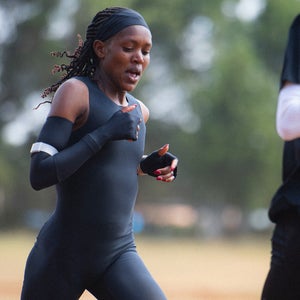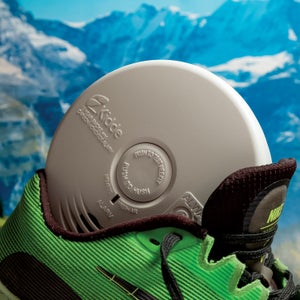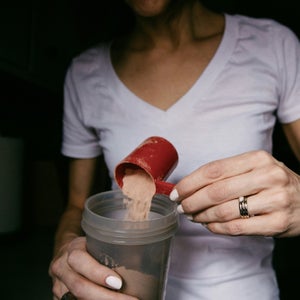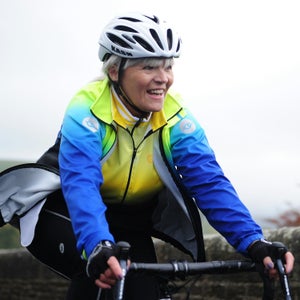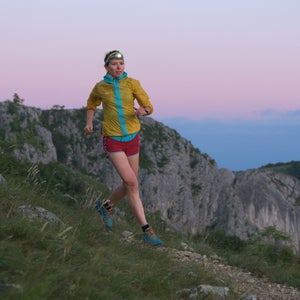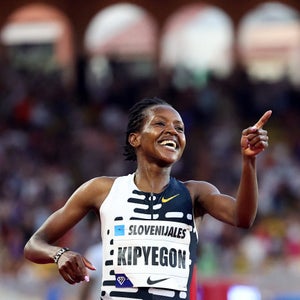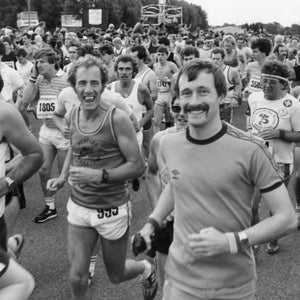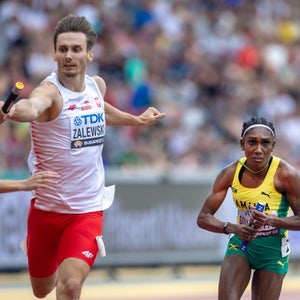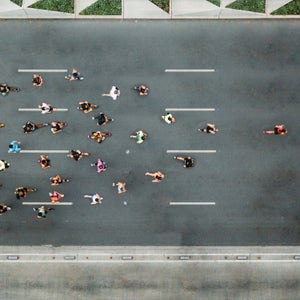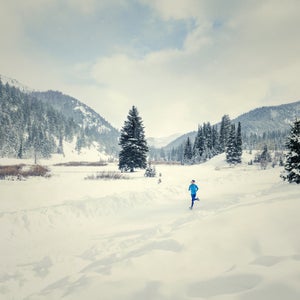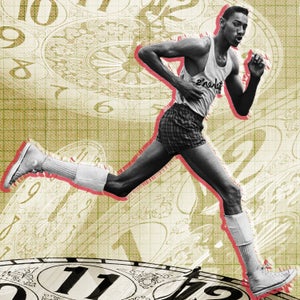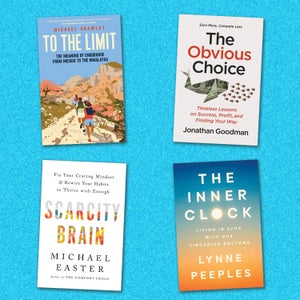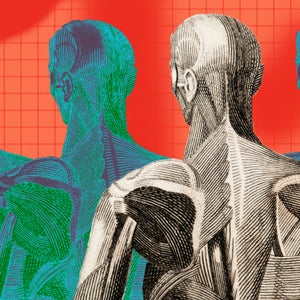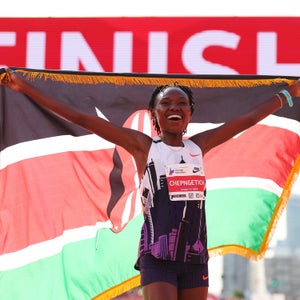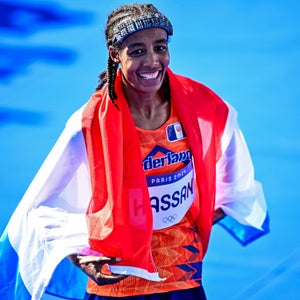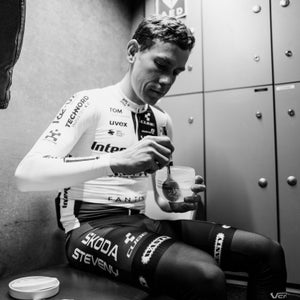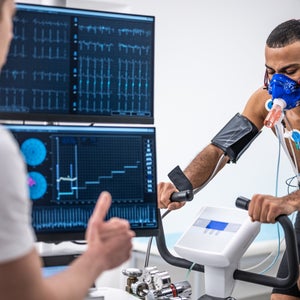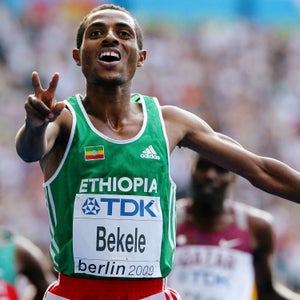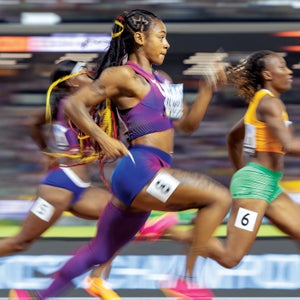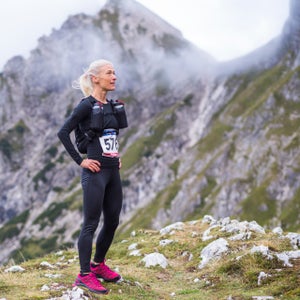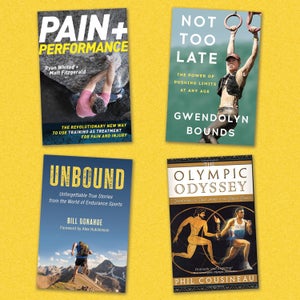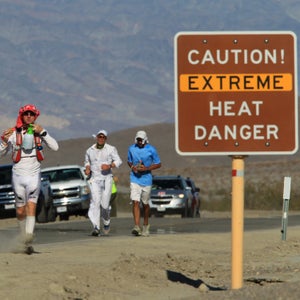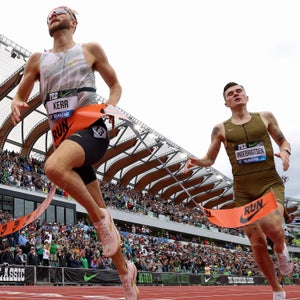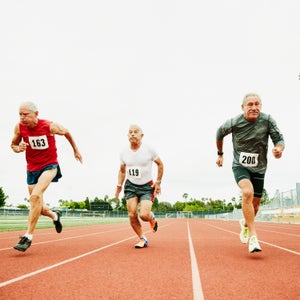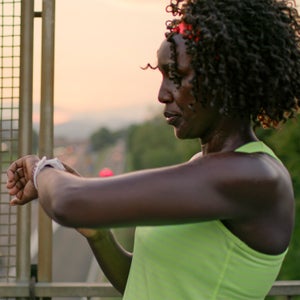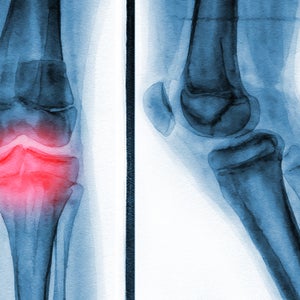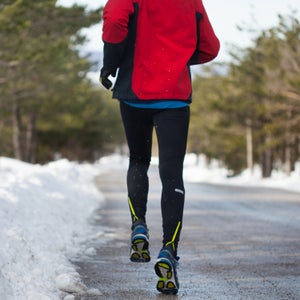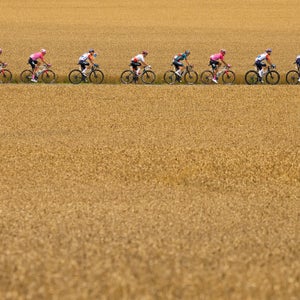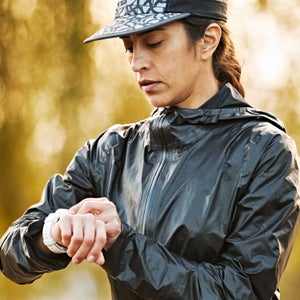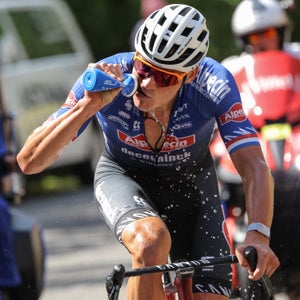

Alex Hutchinson
Alex Hutchinson is a National Magazine Award-winning journalist and Outside’s Sweat Science columnist, covering the latest research on endurance and outdoor sports.
His most recent book is the New York Times bestseller Endure: Mind, Body, and the Curiously Elastic Limits of Human Performance. Before becoming a journalist, he completed a PhD in physics at the University of Cambridge and worked as a researcher in the National Security Agency’s Quantum Computing group. He also competed for the Canadian national team in track, cross-country, road, and mountain running. He lives (and runs) in Toronto.
Published
What we learned about the power of the mind, drafting, pacing, and more
At Nike’s Breaking4 event in Paris, the Kenyan star clocked the fastest ever mile by a woman. Here's how she did it—and why the 4-minute mark remains elusive.
Our Sweat Science columnist is on the ground in Paris for Nike’s Breaking4 race on Thursday
Six years ago, Nike orchestrated the world’s first sub-two-hour marathon. Now, the brand—and Faith Kipyegon—are going after the women’s mile with a high-tech suite of shoes, apparel, and race-day strategies.
A selection of (mostly) new titles for fans of science, endurance, fitness, and adventure
Your watch or wearable isn't actually the most accurate way to determine how hard your last workout was. This completely analog method is.
A new approach to endurance training involves inhaling carbon monoxide—and is reviving old debates about dying to win
It’s not just about big muscles: scientists now believe that protein is also a recovery aid and even a fuel.
According to new research, keeping two repetitions in reserve is almost as good as maxing out every set of your strength routine.
Lactic acid has long been vilified, but new research shows that it doesn't impair muscle function. In fact, it might actually be good for you.
A new study shows the once-popular marathon supplement could offer significant endurance gains.
The Fast-R Nitro Elite 3 claims to offer the biggest improvements in running economy since the Nike Vaporfly took the world by storm eight years ago.
Chronic inflammation increases as you age, but serious training can help you avoid it.
New data explores the complex links between your apps, mental fatigue, and athletic performance.
In an excerpt from his new book, Outside’s Sweat Science columnist digs into the emerging science of why we’re drawn to the unknown and what we get out of it
New data identifies two key risk factors for high-altitude pulmonary edema, a leading cause of death on the highest mountain in the Americas
The risks of training while depleted are finally getting lots of attention—maybe too much
Scientists tackle the challenge of maintaining qualities like high VO2 max and good running economy even when you’re tired
It’s either way more than you think or way less than you think, depending on which scientists you listen to
Two new studies add fresh data to the debate about exercise and brain function
The barrier is closer than it seems, researchers argue—if you fully optimize drafting and other logistical details.
New data suggests that the most efficient uphill slope is steeper than you think
Scientists take a closer look at the studies supporting links between physical activity and mental health and ask: is the evidence any good?
Understanding when and why men outperform women, and under what circumstances that can change, is suddenly a fraught topic.
A new study finds athletes with higher vitamin D levels are stronger, but the big picture remains murky
New data from 2.5 million marathon finishers finds that subtle changes in air quality can affect your race time
New data shows that the biggest difference between elite and middling runners is how much time they spend jogging
Everyone knows taking time off is good for you—in theory. Maybe these new results will convince you to actually do it.
Keeping your muscles cool will supercharge the benefits of aerobic training, new findings suggest
By triggering a diving reflex, athletes who perform breath-holds can increase red blood cells—and, possibly, endurance
Scientists crunched the numbers to come up with the single best predictor of how long you’ll live—and arrived at a surprisingly low-tech answer
A selection of (mostly) new titles for fans of science, endurance, fitness, and adventure
After years of rumors, new data suggests that real-time lactate sensors are finally ready to hit the market. But will athletes know what to do with them?
Do You Have More Slow-Twitch or Fast-Twitch Muscle Fiber? The Answer Could Change the Way You Train.
More evidence emerges that muscle-fiber type matters—if you can figure out which type you have
Scientists recently examined the physiology of the increasingly popular open-ended race format—running 4.167 miles every hour—pioneered by Gary Cantrell.
We lose power more quickly than strength as we get older. Researchers are trying to understand why—and how to fight back.
Critics say the first sub-2:10 marathon was impossible—and fueled by doping. Our columnist examines the science as he tries to make sense of the backlash.
Leading researcher Daniel Moore weighs in on myths, truths, and misconceptions about how much protein athletes need
Research on athletes who are experienced meditators finds better “response inhibition” and superior endurance
The latest wearables have gotten much more accurate at logging our Zzzs. Too bad researchers haven’t figured out how we should use the data.
A new study tests the performance claims of Omius’ unique looking headband worn by Olympic legends Sifan Hassan and Eliud Kipchoge.
Researchers were once convinced that some people have a bigger training response than others—but the data says otherwise
Sports nutritionists love to recommend high protein intake. Kidney specialists aren’t sure that’s a good idea.
A Swedish company’s baking soda formula was the hottest supplement at the Olympics. And now a new study finds that it really works.
Researchers in New Zealand used athlete data to pick up patterns in how we recover. Their insights are surprising.
If you feel like your athletic performance is falling short, this new research might explain why
New technology is distorting track records. Ethiopian running legend Kenenisa Bekele makes the case that his world records are superior to the current ones.
Everyone knows how to run. Now biomechanical analysis may teach us how to do it better.
Military scientists have developed an equation for how many calories it takes to haul weight in different ways
A new study suggests men and women should address age-related declines in aerobic capacity quite differently
A selection of (mostly) new titles for fans of science, endurance, fitness, and adventure
“Predictive processing” offers novel ways to think about sports psychology, the limits of endurance, and the urge to explore.
Our Sweat Science columnist tries out the heat adaptation protocol used by Oregon runners, and survives (barely) to tell the tale.
A trove of ethnographic data reveals that persistence hunting—early humans relying on superior traits to chase down prey—was a worldwide phenomenon
Wunderkind Jakob Ingebrigsten may have lost (again) on Saturday at the Prefontaine Classic, but don’t expect his unorthodox training approach to disappear
Hard training and good genetics give elite runners an edge, but the four-minute barrier may have its own magic
Scientists are finding that the subjective perception of time during exercise is more complex than expected.
Having a high VO2 max is great, but research is showing that the key to elite performance is maximizing something called fatigue resistance
Cycling has always been touted as easy on the knees. But actually preventing arthritis? That’s a new one.
A new study blows up the conventional wisdom about maximum protein doses for athletes.
The fitter you get, the more likely you are to feel that you can’t get enough oxygen during hard exercise
Contrary to what scientists once thought, even superficial cooling is enough to interfere with muscle oxygen supply.
Not as soundly as you’d expect, actually
Short workouts can make you stronger, but longer workouts are better for building muscle, according to new research
Avalanche victims need to be located as quickly as possible. But a newly published case report shows that occasionally, someone beats the odds.
The benefits of training your mental skills are, by definition, all in your head. So how do we prove that it works?
The quest for adequate support can make running less efficient by forcing your breathing muscles to work harder, new research finds
Marijuana is still a banned substance for athletes, but new research is chipping away at the idea that it makes you faster
The logic is good and the anecdotes are common, but the evidence is shakier than expected, researchers find
There isn’t a ton of data on resistance training for women, so researchers pooled it to look for patterns
New research suggests exercise may boost the “love hormone,” the latest in a long line of brain-boosting molecules
The pursuit of performance in a bottle inherently undermines our attempts to get faster, stronger, and healthier, our Sweat Science columnist argues
Data from a charity ride before last summer's Tour shows some obvious differences and surprising similarities to data from the pros.
New research explores the minimum effective dose of resistance training and the health effects of overdoing it
InsideTracker’s massive database of more than 23,000 runners shows that more mileage is associated with better biomarkers
It turns out you can absorb more carbohydrates than sports nutritionists thought. But does it actually make you faster?
A selection of (mostly) new titles for fans of science, endurance, fitness, and adventure
Over the past century, “maximal oxygen uptake” has turned out to be a valuable marker of both endurance and health.
The guidelines for returning to training after giving birth are “vague and inconsistent.” That’s no surprise.
You won’t freeze your lungs exercising outdoors this winter, but there are reasons to be cautious about inhaling extremely cold air



